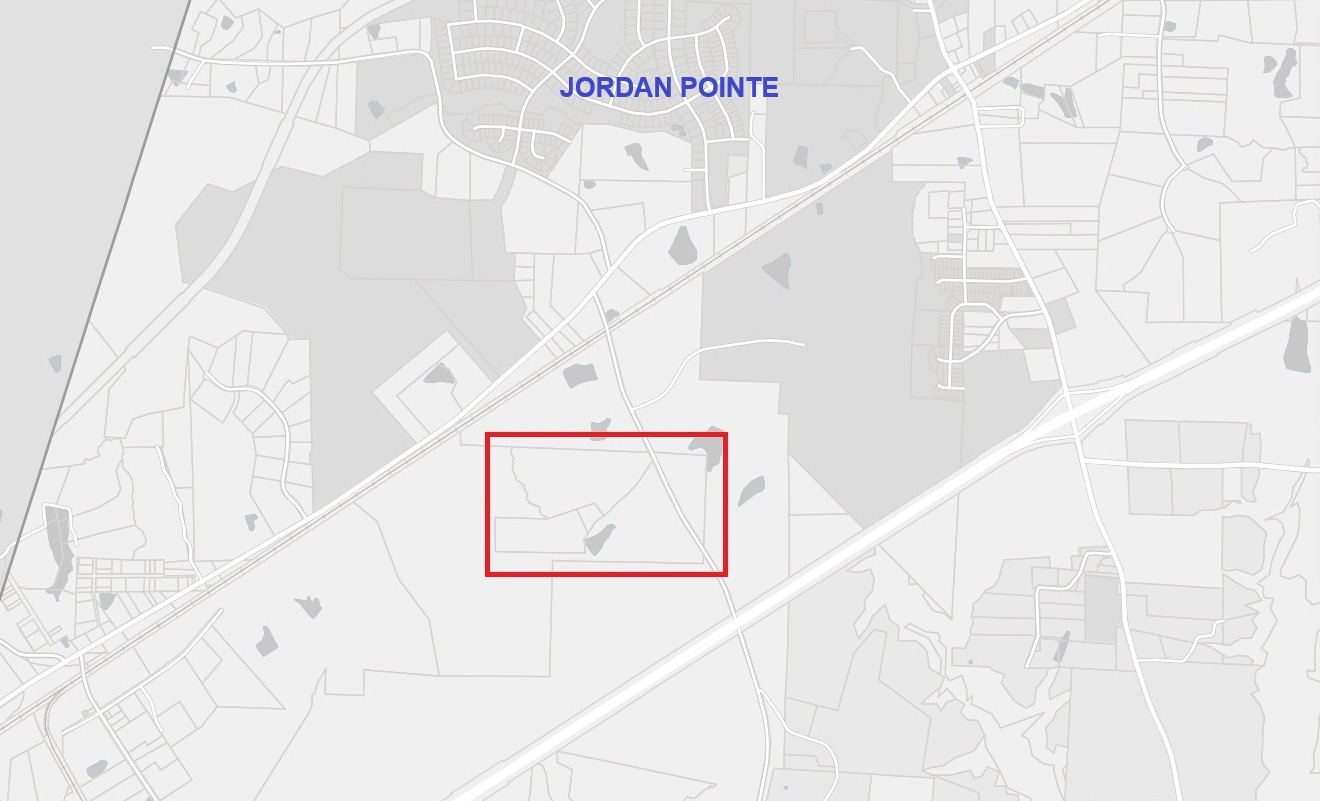Proposed Data Center Near Shearon Harris Plant in Apex Spurs Debate Over Annexation, Rezoning, and Neighborhood Impacts
Developer plans 250-megawatt facility on nearly 190 acres near Jordan Pointe; neighbors cite noise, air quality, and infrastructure concerns as Apex annexation request looms.
Apex, NC, Aug. 26, 2025 — Neighbors in the Jordan Pointe community recently learned of plans for a 250-megawatt data center on about 190 acres along Shearon Harris Road, not far from Duke Energy’s Harris Nuclear Plant.
According to information presented by a Fox Rothschild representative, the project could involve approximately six buildings exceeding 70 feet in height, 80 diesel generators, and treated wastewater cooling, with power supplied through Duke Energy’s distribution grid.
Residents who gathered in the community expressed concerns about diesel fumes, light and noise pollution, and who would pay for costly utility upgrades. Some said the project would impact their ability to raise families in the neighborhood; one neighbor remarked that noise and light could make “no room” in their home suitable for a nursery.
Four Parcels, One Proposal
Wake County records show the site is an assembly of four parcels owned by members of the Goodwin family, all zoned R-30 (residential/agricultural):
0 Shearon Harris Rd (149.99 acres)
4308 Shearon Harris Rd (8.48 acres)
4300 Shearon Harris Rd (1.52 acres)
4232 Shearon Harris Rd (29.93 acres)
Altogether, these parcels total 189.92 acres. R-30 zoning allows farming and large-lot residential, not industrial-scale data centers.
Annexation Request Coming September 2
While residents are looking to the Apex Town Council as the decision-maker, it may be premature. In an email to Holly Springs Update, Apex Planning Director Dianne Khin clarified the current jurisdiction:
“The properties are in Wake County’s jurisdiction currently. Our understanding from the developer’s attorney, Beth Trahos, is that the developer will be requesting annexation and zoning in Apex’s jurisdiction. We’ve been told they plan to submit on September 2nd.”
That means Apex will not take up the case until a formal annexation and rezoning request is filed.
Petition Efforts and Community Pushback
An online petition on Change.org titled “Stand Against Data Center New Hill, NC” (website) is gathering signatures. Petitioners assert the facility would include “80 backup diesel generators” and “70-foot buildings,” drawing a quarter of its power from the nuclear plant. These assertions are being used to highlight concerns about air quality issues, noise, and incompatibility with surrounding neighborhoods.
Lessons from Other Communities
Across the U.S., similarly sized data centers have drawn both praise and protest:
Economic benefits: Virginia’s Joint Legislative Audit & Review Commission found data centers provide substantial construction jobs and property tax revenue, though fewer long-term jobs than other industries.
Community resistance: Communities in Northern Virginia, Indiana, and Oregon have reported chronic noise, diesel exhaust, and strain on water and power systems.
Legal missteps: Courts have voided rezonings when public notice or hearing requirements weren’t met, most recently, in the case of the Prince William Digital Gateway in Virginia.
Potential Impacts in Apex/New Hill
Positives:
Construction-phase jobs and contractor spending
Increased property and equipment tax revenue
Concerns:
Noise & diesel emissions from 80 generators and cooling fans
Treated wastewater use for cooling and potential stress on water systems
Utility costs for infrastructure improvements, possibly borne by ratepayers
Zoning compatibility, as R-30 is residential/agricultural
Sidebar: Key Questions for Officials and Developers
As the annexation and rezoning request proceeds, residents and officials may want to ask:
Project Scope: What are the verified building dimensions, generator counts, and water/power needs?
Noise & Emissions: How often will generators run, and what controls will mitigate diesel exhaust and noise?
Utilities: Who pays for road, water/sewer, and power upgrades, ratepayers or the developer?
Water Use: What is the projected daily treated wastewater demand, and how will droughts or outages be handled?
Economic Return: How much revenue will Apex and Wake County receive, and how does that balance with potential community impacts?
Process Integrity: How will Apex ensure transparency and compliance with notice/hearing rules to avoid legal pitfalls?
The Road Ahead
The developer’s annexation and rezoning request, expected September 2, will be a pivotal moment for the proposed data center. Until then, the project remains under Wake County’s jurisdiction.
For Apex-areas residents, this request marks the opening of a formal process where voices can be heard. For officials, it presents a decision point: balancing economic opportunity with environmental, quality-of-life, and trust concerns.

